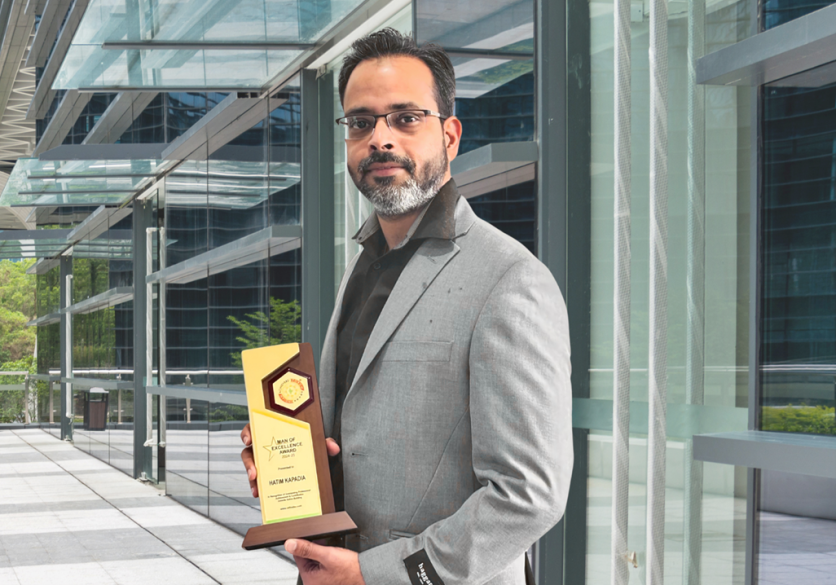
The financial sector is at a turning point. As digital payments surge, the demand for faster, more secure, and scalable transaction systems has never been greater. Hatim Kapadia, a senior engineering leader at one of the Fortune 500 global integrated payment companies, has been a driving force behind this evolution. He remarks, "The financial world is no longer just about transactions; it's about intelligence. The systems we build today must be adaptive, predictive, and secure, ensuring that every transaction moves at the speed of business while maintaining integrity and reducing operational costs."
With this, he spearheaded real-time payment solutions, security advancements, and automation strategies that have optimized financial operations and saved over $100 million annually. Before leading large-scale transformations, Kapadia spent over a decade developing the core technical expertise that would later define his career.
Building the Foundation for Financial Innovation
Hatim Kapadia honed his expertise in financial technology, automation, and enterprise integration at Infosys and Syntel. At Infosys, he developed high-performance financial software solutions, optimizing transaction workflows and introducing automated testing frameworks that reduced operational risks. Later, at Syntel, he led merchant payments innovation, streamlining transaction validation and ensuring financial applications transitioned seamlessly from legacy infrastructures to real-time frameworks.
Kapadia's early contributions in automation and regression testing set the stage for significant cost savings in financial technology. The efficiency gains from these innovations laid the groundwork for his later leadership in scaling real-time payment solutions.
From Batch Processing to Real-Time Transactions
The financial industry has historically relied on batch processing, a method that is inefficient in today's instant digital economy. Businesses and consumers now expect real-time settlements, yet many financial institutions struggle with outdated infrastructures.
Hatim Kapadia led the transition from batch-based, end-of-day processing to real-time transactions, creating frameworks that reduce delays, enhance accuracy, and improve fraud detection. His leadership has been instrumental in enabling intra-day payments and providing businesses with instant access to funds.
"We're moving from a world where payments take hours or days to settle, to one where transactions happen instantly, securely, and intelligently," Kapadia explains. "This shift not only improves customer experience but significantly reduces risks and operational costs."
While real-time transactions have revolutionized payment efficiency, they have also introduced new vulnerabilities, making fraud prevention a top priority.
Enhancing Security and Scalability
With real-time transactions comes increased fraud risk. Hatim Kapadia addressed this challenge by integrating AI-powered fraud detection, ensuring suspicious activity is identified instantly rather than after the fact. Under his leadership, the organization deployed machine-learning models that analyze transaction behavior patterns. This helped improve fraud prevention.
He also developed robust data synchronization mechanisms, including a proactive data grid warm-up and reactive synchronization framework for In-Memory Computing, ensuring real-time data consistency with core banking systems. Kapadia remains confident, stating, "Security isn't an afterthought—it's an integral part of how we design financial systems. We're making transactions smarter, more secure, and more resilient."
Industry Recognition and Leadership
Hatim Kapadia's contributions have earned widespread recognition. He was recently awarded the Man of Excellence Award (2024–2025) by the Indian Achievers Forum and has served as a judge for the Globee Awards in Technology and Artificial Intelligence.
Beyond accolades, Kapadia is a mentor and thought leader, helping global financial institutions navigate real-time payment transitions. His widely cited work, including research on dynamic resource allocation in cloud computing, has influenced how fintech firms approach scalable system design.
His impact extends beyond his current organization, with leading banks and financial technology firms seeking his expertise to navigate the complexities of transitioning from legacy systems to modern, cost-effective transaction infrastructures.
The Road Ahead: Scaling Financial Technology
The financial ecosystem is developing fast, and real-time payments are just the beginning. As institutions accelerate digital strategies, the next phase of fintech innovation will leverage AI, cloud computing, and optimized data architectures.
Hatim Kapadia remains optimistic: "We are in a defining era for financial services. The ability to process transactions in real time is no longer an aspiration—it is the standard. The real question is how institutions will evolve beyond that, leveraging emerging technologies to enhance efficiency and security."
With global financial institutions racing to stay ahead of digital transformation, Hatim Kapadia's expertise will continue to play a pivotal role in shaping the next era of financial security and innovation.
ⓒ 2025 TECHTIMES.com All rights reserved. Do not reproduce without permission.




